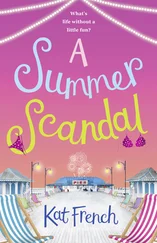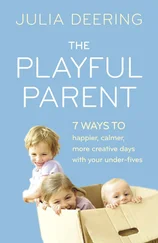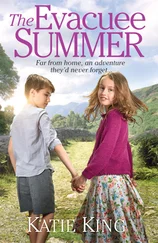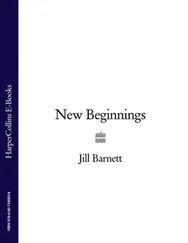JILL BARNETT
This novel is entirely a work of fiction.
The names, characters and incidents portrayed in it are
the work of the author’s imagination. Any resemblance to
actual persons, living or dead, events or localities is
entirely coincidental.
AVON
A division of HarperCollins Publishers 1 London Bridge Street London SE1 9GF
www.harpercollins.co.uk
This paperback edition 2007
First published in the U.S.A by
Atria, a division of Simon & Schuster, Inc. 2006
Copyright © Jill Barnett 2006
Jill Barnett asserts the moral right to
be identified as the author of this work
A catalogue record for this book is
available from the British Library
All rights reserved under International and Pan-American Copyright Conventions. By payment of the required fees, you have been granted the non-exclusive, non-transferable right to access and read the text of this ebook on-screen. No part of this text may be reproduced, transmitted, down-loaded, decompiled, reverse engineered, or stored in or introduced into any information storage and retrieval system, in any form or by any means, whether electronic or mechanical, now known or hereinafter invented, without the express written permission of HarperCollins ebooks.
HarperCollins Publishers has made every reasonable effort to ensure that any picture content and written content in this ebook has been included or removed in accordance with the contractual and technological constraints in operation at the time of publication.
Source ISBN: 9781847560025
Ebook edition © SEPTEMBER 2008 ISBN: 9780007278916
Version: 2018-05-21
This writing life I’ve stumbled through has brought me an abundance of riches, the most valuable a friendship of twenty years .
To Kristin and Benjamin Hannah, who have stood by my side and protected my back through all the wins and losses . Only the angels could have sent you .
Life can only be understood
backwards;
but it must be lived forwards.
Søren Kierkegaard
Title Page Copyright Dedication Part One: 1957 Chapter One Chapter Two Chapter Three Chapter Four Part Two: 1970 Chapter Five Chapter Six Chapter Seven Chapter Eight Chapter Nine Chapter Ten Chapter Eleven Chapter Twelve Chapter Thirteen Chapter Fourteen Chapter Fifteen Chapter Sixteen Chapter Seventeen Chapter Eighteen Chapter Nineteen Chapter Twenty Chapter Twenty One Chapter Twenty Two Part Three: 2002 Chapter Twenty Three Chapter Twenty Four Chapter Twenty Five Chapter Twenty Six Chapter Twenty Seven Chapter Twenty Eight Chapter Twenty Nine Chapter Thirty Chapter Thirty One Chapter Thirty Two Chapter Thirty Three Chapter Thirty Four Chapter Thirty Five Chapter Thirty Six Epilogue Acknowledgments The Days Of Summer Questions And Topics For Discussion A Conversation With The Author About the Author About the Publisher
PART ONE
A hurtful act is the transference to others of
the degradation which we bear in ourselves.
Simone Weil
CHAPTER 1
Southern California
Warm and motionless nights were natural in LA, a place where so much of life was staged and the weather seldom competed for attention. There, events and people stood in the limelight. On most nights, somewhere in the city, searchlights panned the sky; tonight, in front of the La Cienega Art Gallery. All the art show regulars were there in force, names from the society pages, old money and new, along with enough existentialist poets and bohemians to fill every coffeehouse from Hollywood to Hermosa Beach.
Well-known art critics chatted about perspective and meaning, debated social message. They adored the artist, a vibrant, exotic woman whose huge canvases had violent splashes of color charging across them, and wrote about her work in effusive terms as bold as the work itself, likening her to the abstract expressionists Pollock and de Kooning. Rachel Espinosa was the darling of the LA art scene, and Rudy Banning’s wife.
Rudy came to the show late, after drinking all afternoon. His father was right: he was a sucker—something that was easier to swallow if he chased it with a bottle of scotch. The searchlights were off when he parked his car outside the gallery. Once inside, he leaned against the front door to steady himself.
A milky haze of cigarette smoke hovered over the colorless sea of black berets, gray fedoras, and French twists. In one corner, a small band played an odd arrangement of calypso and jazz—Harry Belafonte meets Dave Brubeck. The booze flowed, cigarettes were stacked every few feet on tall silver stanchions, and the catering was Catalan—unusual—and done to propagate the lie that his wife, Rachel Maria-Teresa Antonia Espinosa, was pure Spanish aristocracy. This was her night, and her stamp was on the whole production.
She stood near the back half of the room, under a canned light and in front of one of her largest and latest pieces, Ginsberg Howls . The crowd milled around her, but most managed to stay a few feet away, as if they were afraid to get too close to such an icon. A newspaper reporter for the Los Angeles Times interviewed her, while a staff photographer with rolled-up shirtsleeves circled around her, snapping photos with sharp, blinding flashes.
Rachel turned on for the camera, striking a carefully choreographed pose Rudy had seen before: arm in the air, a martini glass with three cocktail onions in her hand. Tonight she wore bright orange. She knew her place in this room.
Rudy helped himself to a drink from a cocktail tray carried by a passing waiter, then downed the whiskey before he was ten feet away from her. She didn’t see him at first, but turned with instinctive suddenness and looked right at him. What passed between them was merely a ghost of what had been—the days when one look across a room could evaporate everything around them. His wife’s expression softened, until he set his empty drink on a passing tray and grabbed another full one, then raised the glass mockingly and drank it as she watched him, her look so carefully controlled.
“Darling!” Rachel said quickly, then turned to the reporter. “Excuse me.” She rushed forward hands outstretched. “Rudy!” When he didn’t take her hands, she slid her arm through his and moved toward a corner. “You’re late.”
“Really?” Rudy looked around. “What time was this charade supposed to start?”
“You’re drunk. You reek of scotch.” She pulled him away from the crowd.
“Are you trying to shove me off into a corner? I’m six foot four. A little hard to hide.” Rudy stopped bullishly and turned so she was facing the room. “You crave attention so much. Look. People are staring.”
“Stop it!” Her voice was quiet and angry.
“I know, Rachel.”
“Of course you know. No one force-fed you half a bottle of scotch.” Her deep breath had a tired sound. “Dammit, Rudy. Do you have to ruin everything?”
“You bitch!”
Her fingers tightened around his arm. Murmurs came from those nearby, and people eased closer.
“I know,” he said with emphasis. The music faded and the room quickly grew quiet. Rudy had the laughable thought that if it wasn’t a show before, it certainly was one now.
“What are you talking about?”
Apparently lying and persona were all that was left of the woman he’d married. Strange how confronting her felt nothing like he’d imagined. “You want me to shout it? Here? For everyone?” He waved his hand around. “For that reporter, darling ?” His breath was shallow, like he’d been running miles. His vision blurred around the edges, and the taste of booze lodged in his throat. “I will shout it to the world. Damn you. Damn you, Rachel! ” He threw his drink at the painting behind her, and the glass shattered in a perfectly silent room. He stumbled out the front door into the empty night air. At the curb, he used the car’s fin to steady himself, then got inside.
Читать дальше












